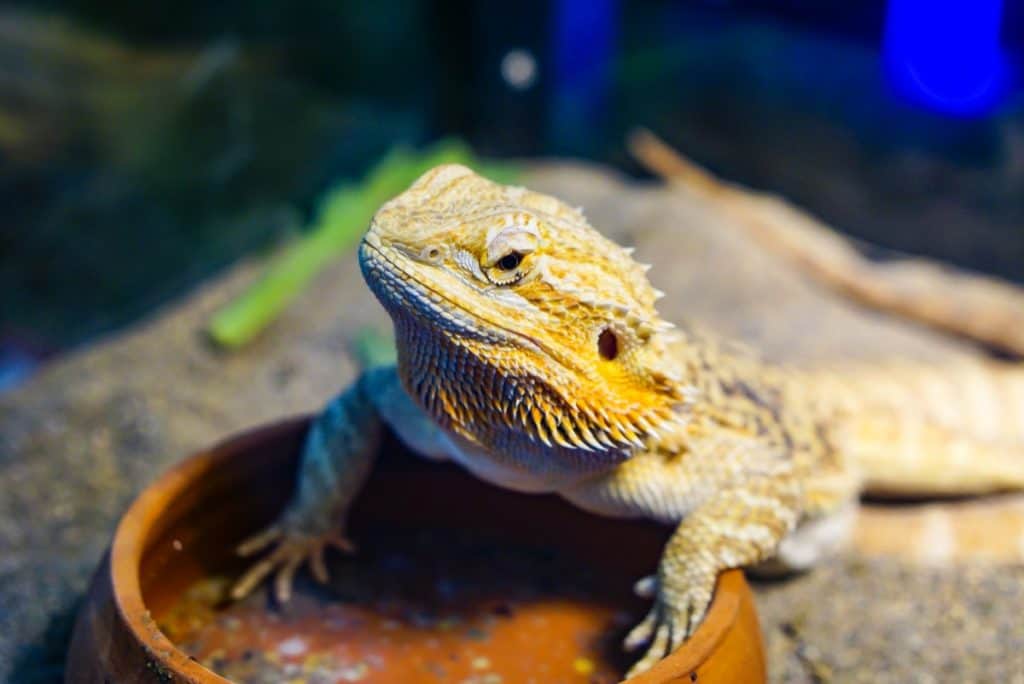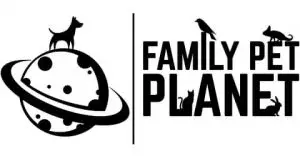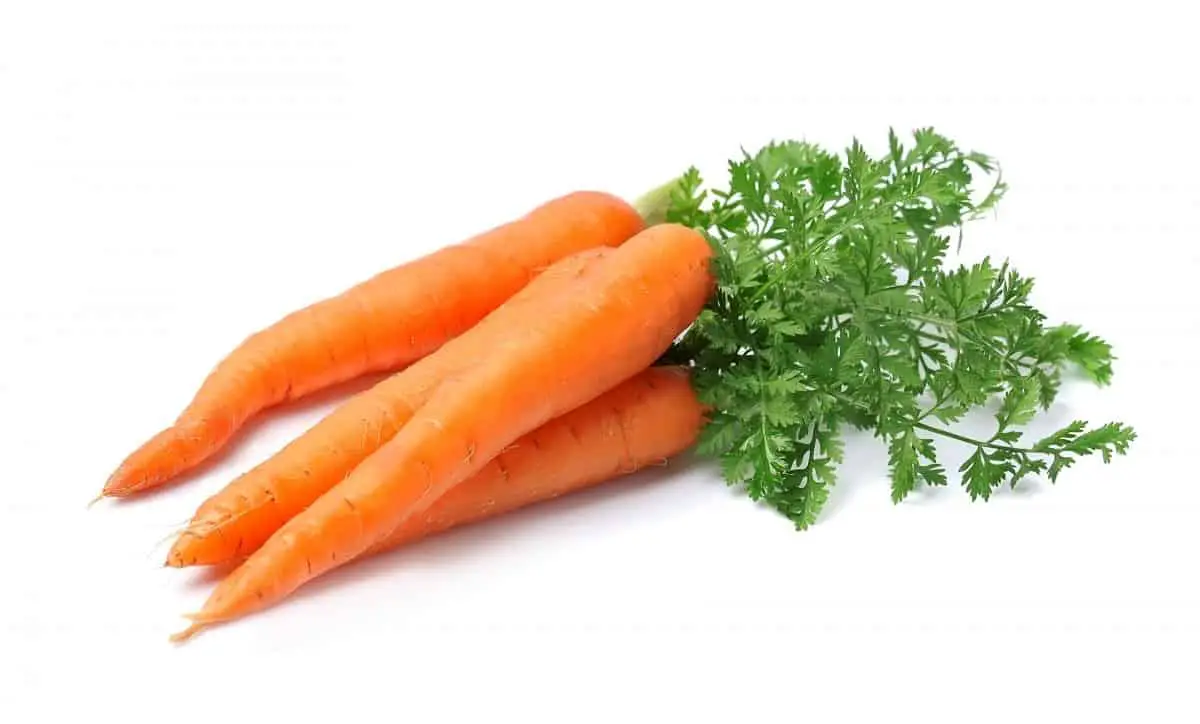Affiliate Disclosure: This post may contain affiliate links. If you make a purchase after clicking on these links I will be compensated at no extra cost to you. However, I never recommend anything I don’t love or wouldn’t use myself!
One of the most important things for any pet owner is to ensure they provide the proper diet for their pets. For a bearded dragon, a healthy diet consists of bugs (good protein), leafy green vegetables and fruits. Young bearded dragons have a diet composed of mostly bugs and very few plants. This completely changes as they become adults, with about 80% of their diet becoming fruits and vegetables.
So, can bearded dragons eat carrots and the carrots green top? Bearded dragons can eat carrots including the green tops which are especially suited to their diet. They are rich in nutrients and bearded dragons usually enjoy them. However, the main body of the carrot contains high levels of vitamin A which can be toxic to dragons in high doses. You should be mindful of this if providing vitamin supplements.
This article will dive into why carrots (and in particular the green carrot tops) are a good addition to a bearded dragon’s diet. It will also detail some of the risks associated with eating too many carrots, and how you can best keep your bearded dragon’s diet healthy.
Bearded Dragons and Carrots
Bearded dragons can, in fact, eat carrots and their green tops. They make a lovely addition to a mix of fruits and vegetables that make up most of an adult bearded dragon’s diet. This section details everything you need to know about carrots and their impact on your bearded dragon’s health.
Why Are Carrots Good for Bearded Dragon Diets?
Carrots are packed with a lot of nutrients that will enhance the value of a bearded dragon’s meal. Carrots can be made a consistent part of their diet, even though this ingredient is not found in their natural habitat.
The main body of carrots provide multiple benefits and nutrients to a bearded dragon’s diet:
- Vitamin A: The most significant value for bearded dragons in a carrot. Bearded dragons may receive supplements with Vitamin A, and carrots can be the whole food alternative to this.
- Beta-carotene: This antioxidant is converted into Vitamin A and helps to protect the body for overall better health outcomes.
- Fiber: Carrots are also rich in fiber, which is helpful for their digestive tracts.
Carrots also provide many other nutrients and vitamins, but they are at significantly lower levels and do not have any real impact.
Carrot tops provide their own benefits and nutrients for a bearded dragon diet:
- Vitamin A: Similar to the carrot itself, Vitamin A is also found in the carrot tops. This makes it another source of healthy greenery.
- Vitamin B6: Improves overall bodily function and may help keep their skin healthy. This can actually impact their color, leading to a deeper and richer tone and greater skin quality overall.
- Vitamin C: Helps to repair tissue and aid in bodily growth and maintenance.
- Vitamin K: Aids in calcium absorption, which is a key nutrient for a bearded dragon.
- Potassium: Helps with overall muscle function in your bearded dragon.
- Calcium: Critical for bone health and particularly important for gravid females. Bearded dragons are prone to getting Metabolic Bone Disease (MBD) which often results from low calcium.
As you can see, carrot tops contain many vitamins and they are more closely related to the natural leafy green diet of bearded dragons. All of these are very beneficial to the growth and health of your bearded dragon.
While you should be more wary of feeding the main body of the carrot to your bearded dragon all of the time (due to the vitamin A content), the green carrot tops can be fed to them on a daily basis.
Preparing Carrots
A bearded dragon will have difficulty eating a carrot that is whole or in large chunks. Cutting them into smaller chunks may also pose the risk of choking. To prevent this from happening, you should prepare carrots and their tops as thinly as possible.
Some possible solutions for cutting carrots include:
- Use a cheese grater: My preferred method. Shredding the carrots makes them much easier and safer for a bearded dragon to eat.
- Cut into thin strips: Thin strips may be easier for them to chew on and take bites to prevent choking.
What Are the Risks Associated with Feeding Carrots to Bearded Dragons?
While carrots are a good addition to a bearded dragon diet, as with most things in life, too much can be a problem. All foods are best in moderation.
There are three major concerns with feeding bearded dragons the orange part of carrots:
- Too much Vitamin A
- Preservatives from baby carrots
- Poor source of calcium
Too many carrots may lead to Vitamin A toxicity which can present serious health risks for your pet. You should be particularly aware of this if your bearded dragon is already taking vitamins or a Vitamin A supplement. Supplements are often given to bearded dragons to balance their nutrient levels which is important for overall health.
Providing all the nutrients that bearded dragons need can be difficult from day to day, and so supplements can really help with consistency. However, this can lead to too much of a particular vitamin if mixed with high levels in their food also. Just remember, while vitamin A toxicity from carrots alone is rare, you should be careful when combining them with other supplements.
Baby carrots can also present a risk to your bearded dragon. Oftentimes, baby carrots have preservatives in them to keep them fresher for longer. They are able to maintain their vibrant colors with these added chemicals. These can be dangerous for your bearded dragon and so you should really only be feeding fully grown carrots to avoid this exposure.
Calcium is a crucial part of any reptile diet. They often do not get enough of it from their regular meals. If the orange part of the carrot alone makes up a large portion of your bearded dragon’s diet, it may be taking the place of other vital foods that are rich in calcium. Therefore, the main body of the carrot should only make up a small fraction of their overall diet while carrot tops, on the other hand, can be a staple part of their diet.
Maintaining a Healthy Bearded Dragon Diet

You will find that your bearded dragon has preferences of some foods over others. However, you shouldn’t solely depend on their preference. This may prevent them from receiving all of the necessary nutrients they would normally receive from other foods.
My kids love chocolate and candy but I’m pretty sure they would get ill pretty quick if I let them eat as much as they wanted! Keep introducing new items until you find a healthy mix of bugs, vegetables, and fruits that your dragon enjoys.
One of the largest concerns for bearded dragons (and all reptiles) is calcium deficiency. This can lead to disease (MBD in particular) and poor health. Make sure that you include food items that are rich in calcium or use supplements if you have to.
Greens that you should offer your bearded dragon as part of their staple diet should have high calcium to phosphorous ratios. Here are some leafy vegetables that have good ratios and can be fed to your bearded dragon on a daily basis:
- Carrot tops
- Endives (escarole)
- Radicchio
- Chicory
It is key to maintain a well-rounded diet as mentioned. This means giving them lots of variation in moderation. Just remember, too much of any one food can lead to dangerous levels of particular vitamins.

